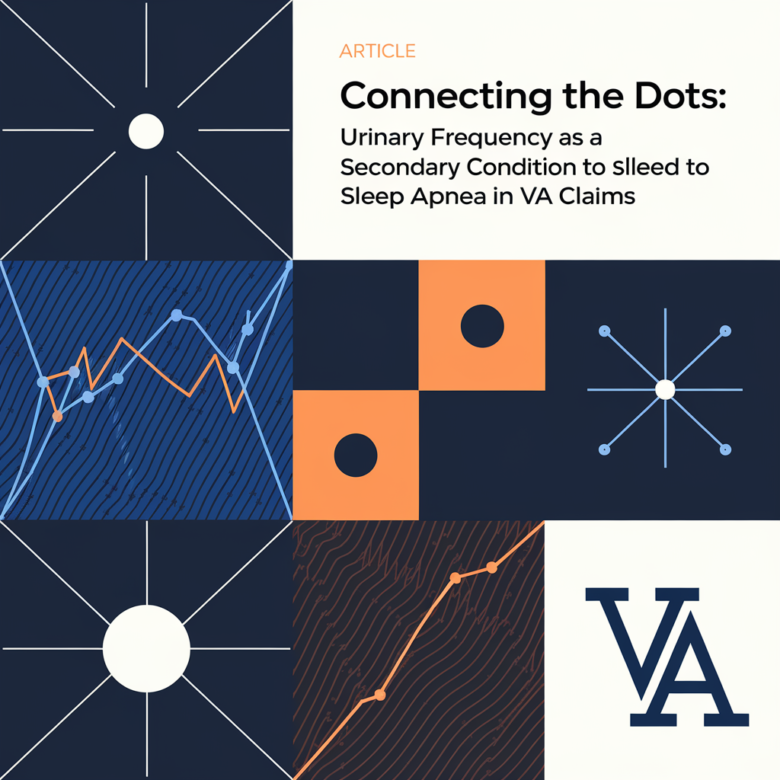Urinary frequency, characterized by the need to urinate more often than usual, can be a secondary condition to sleep apnea in VA disability claims. This connection is not widely known but can significantly impact a veteran’s quality of life and disability rating. This article explores the relationship between sleep apnea and urinary frequency and how to approach this in VA claims.
Understanding the Connection
Sleep apnea and urinary frequency are linked in several ways:
| 1. Disrupted sleep patterns: Sleep apnea interrupts normal sleep, leading to increased nighttime urination. |
|---|
- Hormonal imbalances: Sleep apnea can affect hormone production, including antidiuretic hormone (ADH), which regulates urine production.
- Increased intra-abdominal pressure: Obesity, a common factor in sleep apnea, can increase pressure on the bladder.
Establishing Secondary Service Connection
To claim urinary frequency as secondary to sleep apnea:
| 1. Existing service connection: Ensure sleep apnea is already service-connected. |
|---|
- Medical evidence: Provide documentation linking urinary frequency to sleep apnea.
- Nexus letter: Obtain a medical opinion explaining the connection.
Documenting Urinary Frequency
Keep detailed records of:
| – Frequency of urination (day and night) |
|---|
- Impact on daily activities and sleep
- Any related symptoms or complications
VA Rating Criteria for Urinary Frequency
The VA rates urinary frequency based on daytime voiding intervals and nighttime awakening:
| – 10%: Daytime voiding interval between 2-3 hours, or awakening to void 2 times per night |
|---|
- 20%: Daytime voiding interval between 1-2 hours, or awakening to void 3-4 times per night
- 40%: Daytime voiding interval less than 1 hour, or awakening to void 5 or more times per night
Filing a Secondary Claim
Steps to file:
| 1. Gather medical evidence |
|---|
- Complete VA Form 21-526b
- Submit a detailed personal statement
- Include buddy statements if applicable
Common Challenges and How to Address Them
- Lack of medical evidence: Consult with a urologist familiar with sleep apnea
- VA examiner disagreement: Provide strong counter-evidence or seek an independent medical opinion
- Time gap between diagnoses: Explain any delay in seeking treatment
Strengthening Your Claim
- Keep a symptom log detailing both sleep apnea and urinary frequency
- Obtain a comprehensive medical examination
- Provide studies or medical literature supporting the connection
Impact on Overall Disability Rating
- Understand how secondary conditions affect combined ratings
- Consider the possibility of Special Monthly Compensation (SMC) for loss of use
Conclusion
Recognizing urinary frequency as a potential secondary condition to sleep apnea can be crucial in ensuring veterans receive appropriate compensation. By understanding the connection, documenting symptoms thoroughly, and providing strong medical evidence, veterans can strengthen their VA claims and receive the benefits they deserve.




